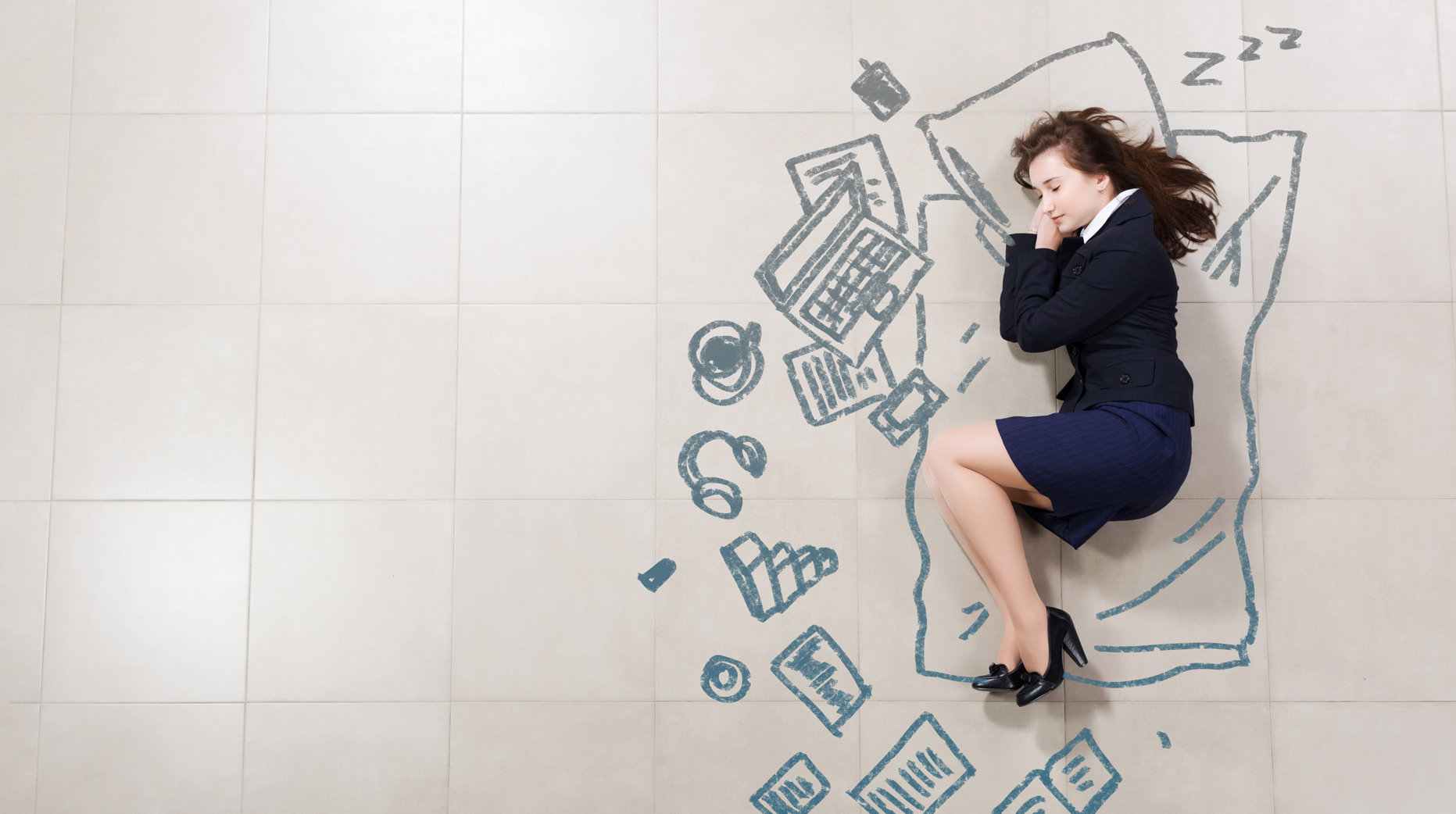Sleep For Health
In a recent interview, Dr. Carmel Harrington shared some key insights on sleep hygiene. In the article below she explains the consequences that poor sleep habits can have on our health and what we can do to have a better sleep.
Sleep - The Third Pillar Of Health
Article by Dr. Carmel Harrington
Sleep is our third pillar of health and is just as important as exercise and nutrition. Without good sleep on a regular basis our physical and mental health will suffer.
Not getting the sleep we need has ill-effects both in the short and long term. In the short term it can put us in a bad mood, decrease our energy level and libido and increase our susceptibility to catching a cold or 'flu. We will also find it difficult to think well and to plan and in this state we are much more likely to have a car or occupational accident.
Long-term sleep difficulties mean that we are much more likely to develop a chronic disease such as depression, certain types of cancer, cardiovascular diseases, such as high blood pressure and heart disease; and metabolic diseases, such as Type II diabetes and obesity.
However there is good news. When we do get the sleep we need on a regular basis we are healthier, happier, more motivated and dynamic, better thinkers, and are more likely to eat and exercise well. Just in case we need more convincing, research shows that we even look more attractive.
Unfortunately people frequently sabotage their own sleep without realising it. Probably the most common sleep stealer is technology. Most of us don't realise the fact that our sleep hormone, melatonin, can only be produced by the brain in dim or dark light.
So if we are on the computer/phone or watching a high-definition TV screen right up until the time of sleeping we will have trouble getting to sleep and/or staying asleep.
Many of us also do not get enough exercise in our day and so even though our brain is tired our body isn't. It is always a good practice to have at least 20 minutes exercise every day and we can get this by going for a walk at lunch time. However, make sure not to exercise within 3 hours of bedtime as this only serves to alert the body.
Caffeine is another big sleep stealer and becomes more so as we get older because our metabolic rate decreases, causing the effects of coffee to stay in our body longer. If you have sleeping difficulties it is important not to have caffeine, in any form, after midday. Green tea is also a stimulant so best to limit those cups of tea to the morning hours.
Where we sleep also affects how we sleep. If we sleep on an uncomfortable mattress in a light and noisy room we will often experience difficulties either getting to or staying asleep.
Our bedroom needs to be a safe sanctuary away from the rest of the world where we can rest and restore our body. It is therefore of primary importance to assess your sleeping environment and ensure that your bed and bedding are comfortable and that the room is dark, quiet and cool.
It is a sad fact but true that many people find it difficult to sleep because they do not give themselves enough down-time. It is important to realise that we need our mind to relax in order to get the best sleep possible, so always try to factor in some time to relax in the evening before going to bed.
How To Improve Your Sleep
How we sleep at night is often very dependent upon how we spent our day. To get the best sleep possible we do need to prepare both our mind and body for sleep.
To Prepare The Body We Need To:
- Get up at the same time every day.
- Exercise for at least 20 minutes per day (a walk at lunchtime is good)
- Not have caffeine after midday
- Refrain from alcohol
- Not sleep during the day (a nap of 20 minutes is ok)
- Eat only a small meal at night and especially no big meal within 3 hours of bedtime.
- Not exercise within 3 hours of bedtime (this will alert the body)
To Prepare The Mind We Need To:
- Deal with the issues of the day:
in the early evening spend no more than 20 minutes writing events of the day that are of concern along with potential solutions. Close the book and put it away. - Set an alarm one hour before bedtime. At that time:
- turn off all technology
- dim the lighting in the room
- warm-hot shower
- relaxation exercise
- Ensure that the bed and bedroom environment is conducive to sleep:
- quiet
- cool
- dark
- absolutely no technology in the bedroom
...and now you are ready for a great night of sleep.
Sweet dreams
- i4 Neuroleader (353)
- Leadership & Culture (337)
- Brain Health & Wellbeing (206)
- Innovation (97)
- Performance (85)
- Our News (79)
- Collaboration (68)
- Agility (53)
- Practitioner Stories (44)
- In The Press (36)
- Make Me A Leader (33)
- Balance (31)
- Integration (30)
- Imagination (29)
- Awareness (23)
- Brain-Friendly Channel (22)
- Brain-Friendly Leadership (22)
- Communication (22)
- Curiosity (21)
- Inspiration (19)
- Intuition (19)
- Attitude (17)
- Courage (16)
- Adaptability (14)
- Case Studies (14)
- Drive (14)
- Generosity (13)
- Ethics (9)
- Mental Readiness (9)
- Influence (8)
- Retreat (8)
- Brain-Friendly Leadership (1)
- Oracle Cards (1)
- 1 February 2026 (1)
- 1 November 2025 (2)
- 1 September 2025 (3)
- 1 August 2025 (5)
- 1 July 2025 (5)
- 1 June 2025 (2)
- 1 April 2025 (1)
- 1 March 2025 (8)
- 1 February 2025 (3)
- 1 September 2024 (4)
- 1 July 2024 (2)
- 1 June 2024 (6)
- 1 May 2024 (2)
- 1 April 2024 (3)
- 1 March 2024 (1)
- 1 November 2023 (1)
- 1 August 2023 (1)
- 1 July 2023 (2)
- 1 June 2023 (2)
- 1 May 2023 (4)
- 1 April 2023 (2)
- 1 March 2023 (7)
- 1 February 2023 (4)
- 1 January 2023 (1)
- 1 September 2022 (1)
- 1 May 2022 (3)
- 1 April 2022 (1)
- 1 March 2022 (5)
- 1 February 2022 (4)
- 1 January 2022 (4)
- 1 December 2021 (2)
- 1 November 2021 (4)
- 1 October 2021 (3)
- 1 September 2021 (6)
- 1 August 2021 (1)
- 1 April 2021 (1)
- 1 December 2020 (2)
- 1 November 2020 (1)
- 1 September 2020 (1)
- 1 August 2020 (1)
- 1 July 2020 (3)
- 1 June 2020 (4)
- 1 May 2020 (3)
- 1 April 2020 (4)
- 1 March 2020 (6)
- 1 February 2020 (4)
- 1 January 2020 (2)
- 1 December 2019 (3)
- 1 November 2019 (3)
- 1 October 2019 (5)
- 1 September 2019 (4)
- 1 August 2019 (4)
- 1 July 2019 (4)
- 1 June 2019 (5)
- 1 May 2019 (9)
- 1 April 2019 (9)
- 1 March 2019 (8)
- 1 February 2019 (7)
- 1 January 2019 (8)
- 1 December 2018 (5)
- 1 November 2018 (10)
- 1 October 2018 (16)
- 1 September 2018 (9)
- 1 August 2018 (10)
- 1 July 2018 (9)
- 1 June 2018 (8)
- 1 May 2018 (9)
- 1 April 2018 (9)
- 1 March 2018 (9)
- 1 February 2018 (8)
- 1 January 2018 (8)
- 1 December 2017 (6)
- 1 November 2017 (9)
- 1 October 2017 (9)
- 1 September 2017 (8)
- 1 August 2017 (10)
- 1 July 2017 (8)
- 1 June 2017 (8)
- 1 May 2017 (9)
- 1 April 2017 (8)
- 1 March 2017 (6)
- 1 January 2017 (3)
- 1 December 2016 (4)
- 1 November 2016 (5)
- 1 October 2016 (4)
- 1 September 2016 (2)
- 1 August 2016 (4)
- 1 July 2016 (4)
- 1 June 2016 (2)
- 1 May 2016 (3)
- 1 April 2016 (3)
- 1 March 2016 (7)
- 1 February 2016 (2)
- 1 January 2016 (5)
- 1 December 2015 (2)
- 1 November 2015 (2)
- 1 October 2015 (4)
- 1 September 2015 (2)
- 1 August 2015 (2)
- 1 July 2015 (1)
- 1 June 2015 (3)
- 1 May 2015 (4)
- 1 April 2015 (5)
- 1 March 2015 (3)
- 1 February 2015 (3)
- 1 January 2015 (3)
- 1 December 2014 (3)
- 1 November 2014 (3)
- 1 October 2014 (3)
- 1 September 2014 (5)
- 1 August 2014 (4)
- 1 July 2014 (5)
- 1 June 2014 (3)
- 1 May 2014 (1)
- 1 March 2014 (1)
- 1 December 2013 (2)
- 1 November 2013 (1)
- 1 July 2013 (1)
- 1 June 2013 (1)
- 1 May 2013 (3)
- 1 April 2013 (1)
- 1 March 2013 (2)
- 1 February 2013 (1)
- 1 January 2013 (2)
- 1 November 2012 (1)
- 1 October 2012 (1)
- 1 September 2012 (1)
- 1 August 2012 (2)
- 1 July 2012 (1)
- 1 June 2012 (1)
- 1 May 2012 (2)
- 1 April 2012 (1)
- 1 February 2012 (1)
- 1 January 2012 (1)
- 1 November 2011 (1)
- 1 October 2011 (3)
- 1 September 2011 (2)
- 1 July 2011 (1)
- 1 June 2011 (1)
- 1 May 2011 (1)
- 1 April 2011 (1)
- 1 March 2011 (1)
- 1 February 2011 (2)
- 1 January 2011 (4)
- 1 December 2010 (4)
- 1 November 2010 (3)
- 1 October 2010 (5)
- 1 September 2010 (4)
- 1 August 2010 (4)
- 1 July 2010 (3)
- 1 June 2010 (4)
- 1 May 2010 (7)
- 1 April 2010 (5)
Subscribe by email
You May Also Like
These Related Stories

Sleep to Lead — Improving Cognitive Function And Performance

Gut Health & Well-Being



No Comments Yet
Let us know what you think